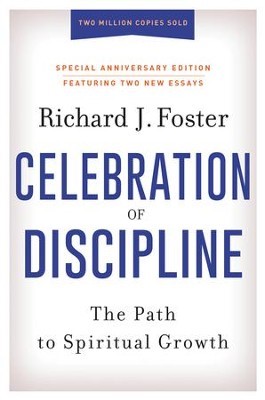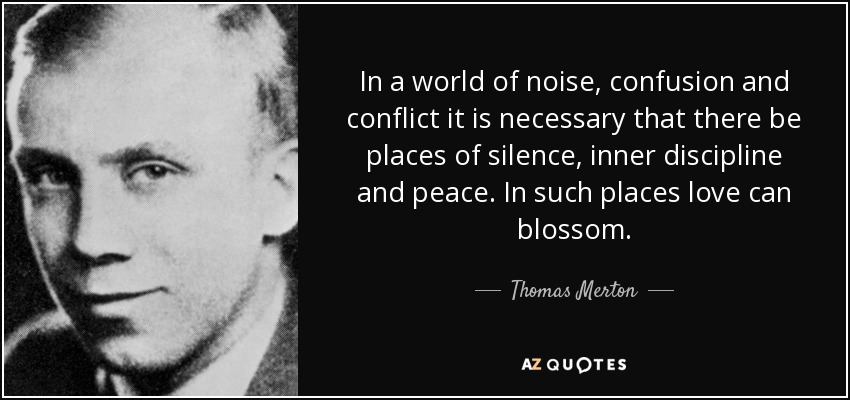Click here to return to Blog Post Intro

Jesus lived in inward “heart solitude,” and He also frequently experienced outward solitude. Consider when Jesus practiced solitude:
- He inaugurated his ministry by spending forty days alone in the desert (Matthew 4:1–11).
- Before he chose the twelve he spent the entire night alone in the desert hills (Luke 6:12).
- When he received the news of John the Baptist’s death, he “withdrew from there in a boat to a lonely place apart” (Matthew 14:13).
- After the miraculous feeding of the five thousand Jesus “went up into the hills by himself…” (Matthew 14:23).
- Following a long night of work, “in the morning, a great while before day, he rose and went out to a lonely place…” (Mark 1:35).
- When the twelve returned from a preaching and healing mission, Jesus instructed them, “Come away by yourselves to a lonely place” (Mark 6:31).
- Following the healing of a leper Jesus “withdrew to the wilderness and prayed” (Luke 5:16).
- With three disciples he sought out the silence of a lonely mountain as the stage for the transfiguration (Matthew 17:1–9).
- As he prepared for his highest and most holy work, Jesus sought the solitude of the garden of Gethsemane (Matthew 26:36–46).
Dietrich Bonhoeffer in Life Together titled one of his chapters “The Day Together” and the following chapter “The Day Alone.” Both are essential for spiritual success. He wrote, “Let him who cannot be alone beware of community… Let him who is not in community beware of being alone… Each by itself has profound pitfalls and perils. One who wants fellowship without solitude plunges into the void of words and feelings, and one who seeks solitude without fellowship perishes in the abyss of vanity, self-infatuation, and despair.”
Without silence there is no solitude. Though silence sometimes involves the absence of speech, it always involves the act of listening. Simply to refrain from talking, without a heart listening to God, is not silence.
The Imitation of Christ, the 15th century Christian devotional book composed by Thomas à Kempis, is considered the unchallenged masterpiece of devotional literature for five hundred years, has a section titled “On the Love of Solitude and Silence.” Dietrich Bonhoeffer makes the two an inseparable whole in Life Together as does Thomas Merton in Thoughts in Solitude.
There is an old proverb to the effect that “all those who open their mouths, close their eyes!” The purpose of silence and solitude is to be able to see and hear.
Thomas à Kempis writes, “It is easier to be silent altogether than to speak with moderation.”
Ecclesiastes says that there is “a time to keep silence and a time to speak” (Ecclesiastes 3:7). Control is the key. A person who is under the Discipline of silence is a person who can say what needs to be said when it needs to be said. “A word fitly spoken is like apples of gold in a setting of silver” (Proverbs 25:11). If we are silent when we should speak, we are not living in the Discipline of silence. If we speak when we should be silent, we again miss the mark.
One of the fruits of silence is the freedom to let God be our justifier. We don’t need to straighten others out.

The tongue is a thermometer; it gives us our spiritual temperature. It is also a thermostat; it regulates our spiritual temperature. Control of the tongue can mean everything. Have we been set free so that we can hold our tongue? Bonhoeffer writes, “Real silence, real stillness, really holding one’s tongue comes only as the sober consequence of spiritual stillness.”
Catherine de Hueck Doherty writes, “All in me is silent and…I am immersed in the silence of God.” It is in solitude that we come to experience the “silence of God” and so receive the inner silence that is the craving of our hearts.
What are some steps into solitude? Take advantage of the “little solitudes” that fill our day. Consider the solitude of those early morning moments in bed before the family awakens. Think of the solitude of a morning cup of coffee before beginning the work of the day. There is the solitude of bumper-to-bumper traffic during the freeway rush hour. There can be little moments of rest and refreshment when we turn a corner and see a flower or a tree.
What else can we do? We can find or develop a “quiet place” designed for silence and solitude.
Let’s find places outside the home: a spot in a park, a church sanctuary that is kept unlocked, even a storage closet somewhere. Foster pointed out that a retreat center near him built a lovely one-person cabin specifically for private meditation and solitude called “The Quiet Place.”
Catherine de Hueck Doherty has pioneered in developing “Poustinias” (a Russian word meaning “desert”) in North America. These are places specifically designed for solitude and silence.
Let’s become known as people who have something to say when we speak. Let’s maintain plain speech: do what we say we will do. “It is better that you should not vow than that you should vow and not pay” (Ecclesiastes 5:5).
When our tongue is under our authority the words of Bonhoeffer become true of us: “Much that is unnecessary remains unsaid. But the essential and the helpful thing can be said in a few words.”
Four times a year withdraw for three to four hours for the purpose of reorienting your life goals. This can easily be done in one evening. Stay late at your office or do it at home or find a quiet corner in a public library. Reevaluate your goals and objectives in life. What do you want to have accomplished one year from now? Ten years from now? Our tendency is to overestimate what we can accomplish in one year and underestimate what we can accomplish in ten years. Set realistic goals but be willing to dream, to stretch.
In the quiet of those brief hours, listen to the thunder of God’s silence. Keep a journal record of what comes to you. Goals are discovered, not made. God delights in showing us exciting new alternatives for the future.
Take a retreat once a year with no other purpose in mind but solitude. The fruit of solitude is increased sensitivity and compassion for others. There comes a new freedom to be with people. There is new attentiveness to their needs, new responsiveness to their hurts. Thomas Merton observes, “It is in deep solitude that I find the gentleness with which I can truly love my brothers. The more solitary I am the more affection I have for them… Solitude and silence teach me to love my brothers for what they are, not for what they say.”
Don’t you feel a tug, a yearning to sink down into the silence and solitude of God? Don’t you long for something more? Doesn’t every breath crave a deeper, fuller exposure to his Presence? It is the Discipline of solitude that will open the door. You are welcome to come in and “listen to God’s speech in his wondrous, terrible, gentle, loving, all-embracing silence.”
May silence and solitude serve you well, as you shoot for the stars!

